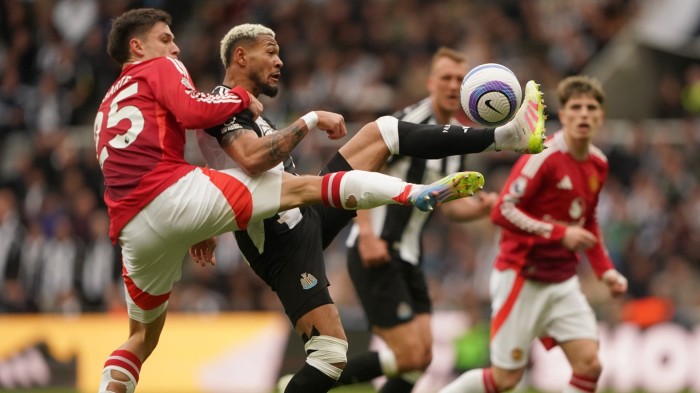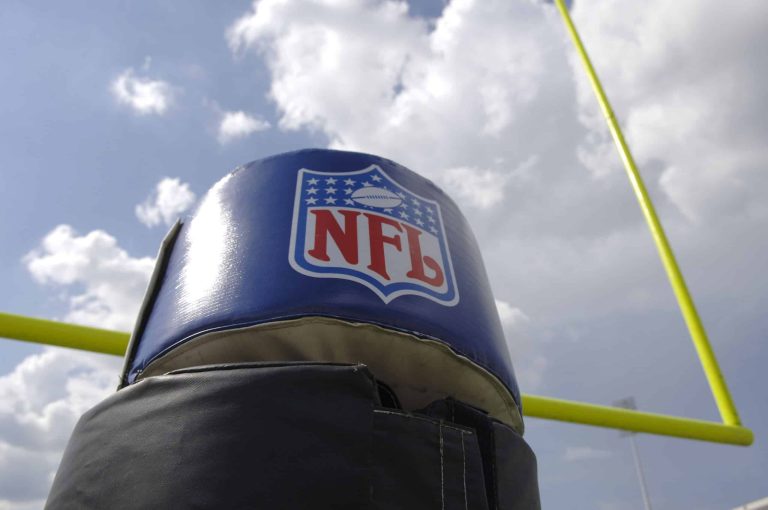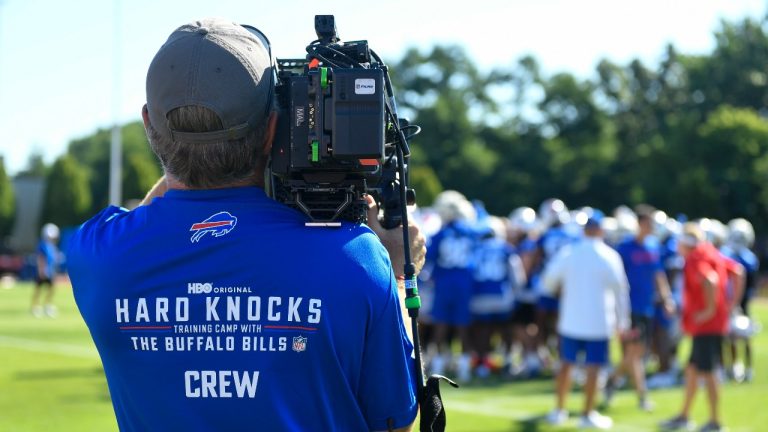Stay informed with free updates
Simply sign up to the Media myFT Digest — delivered directly to your inbox.
The number of people who stream sports or other channels illegally in the UK has gone “through the roof” — straining already-stretched police forces in their efforts to prosecute consumers who flout the law, the head of Britain’s intellectual property crime unit has said.
Emma Warbey, detective chief inspector and head of the Police Intellectual Property Crime Unit (PIPCU) at the City of London Police, admitted individuals were largely able to use “broken” illegal fire sticks without risk of arrest by her team as officers targeted organised crime groups and resellers at the head of such schemes.
The use of internet TV media boxes or “sticks” that can be used to illegally stream content had become increasingly prevalent, she said — something that broadcasters have warned devalues the sports rights market.
These boxes can be preloaded with software that can stream illegal sports and channels from around the world.
Warbey said it would be wrong to conclude that using illegal streams to watch sports and other paid TV content was a risk-free way of watching media, pointing to fraud and funding for organised crime gangs.
She said her team had focused efforts on tackling “resellers and the people at the top of the tree” given “it’s really hard to stop people doing it”.
She added: “We always follow the money and go for the bigger organised crime groups and the bigger organised crime networks.”
Broadcasters and law enforcement officers have raised concerns that the increase in use of illegal streaming devices has helped normalise piracy for many sports fans in the UK and parts of Europe.
The rise of pirated sports risks undermining the value of exclusive football and other sports around the UK and Europe, they warn, with concerns that use of illegal streams was seen as a victimless crime.
Warbey said police had discovered clear links between pirated sports with money laundering and fraud, which should make users more careful.
“Those criminals are using that money, your hard-earned money, for lots of different things, usually drugs, certainly forced labour, people trafficking, huge amounts of other criminality that you’re feeding into so it isn’t a victimless crime.”
The police used “cease and desist” letters initially with the lower-level sellers of illegal TV services, Warbey said. “We are basically saying, ‘We know what you’re doing, this is the law that you’re breaking, and if you carry on, we will come and arrest you.’”
Such letters can be “very effective . . . because it is so prevalent in the UK. If you were a 22-year-old doing it from your bedroom and the police turned up, that’s a huge impact. We can’t arrest everybody in the UK that’s doing it. So we’re trying to look at other tactics.”
Warbey also warned that many consumers would also not realise they were giving their personal details to fraudsters and organised crime groups, raising the risk of fraud.
She said the cost of living crisis had added to the already rising cases of people using illegal but cheaper means to watch sports.

Last month, Sky criticised Amazon for not doing more to tackle the use of its Fire Sticks in streaming pirated content. It estimates that Amazon sticks account for about half the illegal streaming of Premier League football in the UK alone, costing the industry “hundreds of millions of dollars”.
Amazon said it had prohibited the sale of illicit streaming devices in its marketplace as well as on apps that infringed the rights of third parties. It added its Fire TV service “included on-device warnings informing customers of the risks associated with installing or using apps from unknown sources”.
The City of London police oversees efforts to tackle piracy as the lead on fraud, although Warbey’s team is funded by the Intellectual Property Office.
Companies such as Sky can also carry out private prosecutions and can work with other police forces around the country. Sky won a High Court order that forces internet service providers to block piracy services from being able to illegally stream its football games and TV shows.
Criminal investigations and court cases can take months, meaning that resources need to be allocated to the larger criminal gangs. Last year, Warbey’s team was part of an international police operation that shut down one of the world’s largest illegal online streaming services, used by about 22mn people globally. One of her longest-running cases is going to court in October.
Such cases highlighted the need to go for the criminals “at the top of the tree, [who] will have tens of thousands of resellers all across the country that are selling it down”, she said.
She said it was not just pirated sports; criminals also sell access to any TV shows and channels that are either not available or need to be paid for in the UK. This also works the other way, with gangs selling British-only streams such as iPlayer in Europe.







